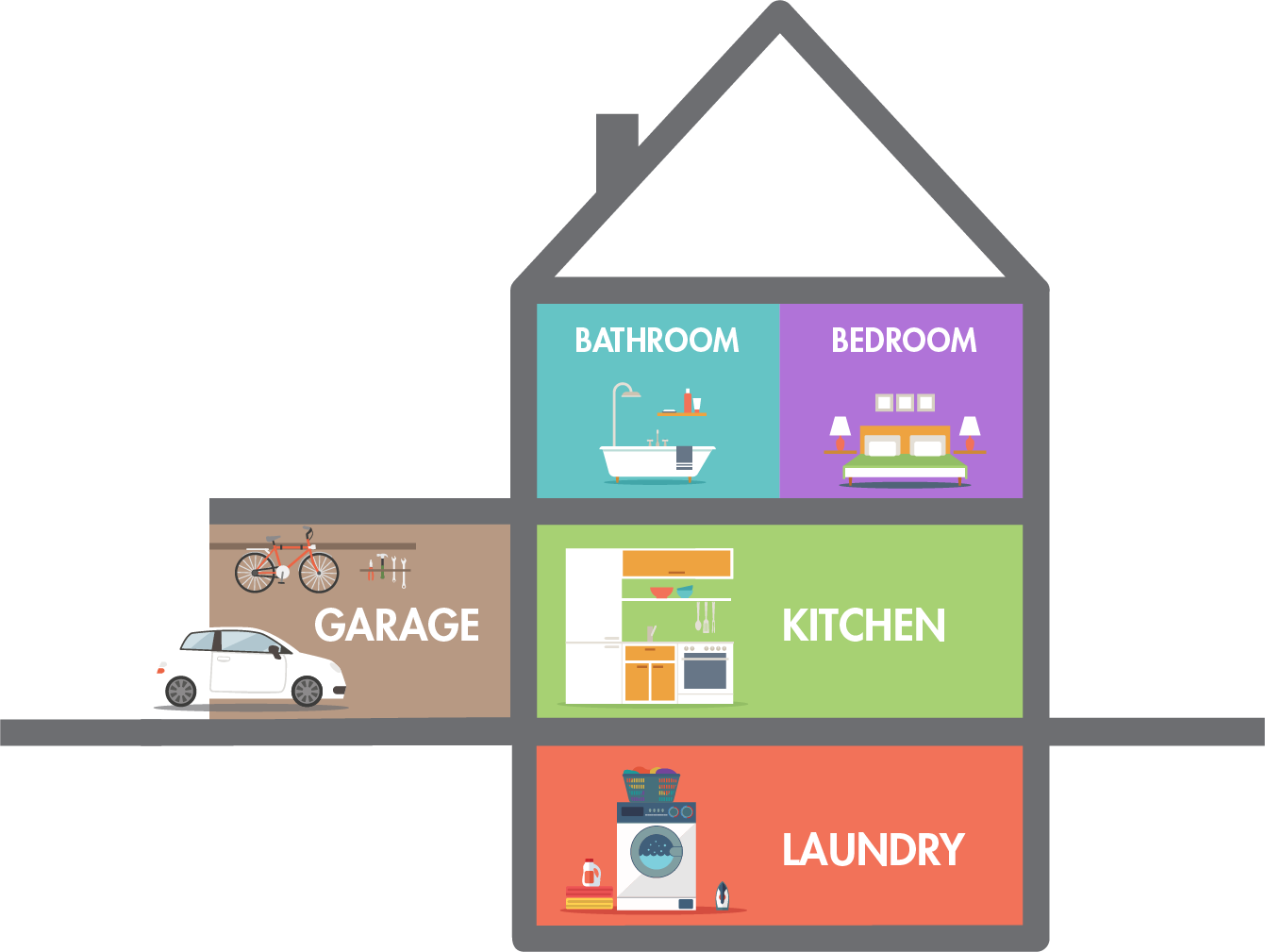 How can you reduce your plastic footprint in your home?
How can you reduce your plastic footprint in your home?
Take it one room at a time!
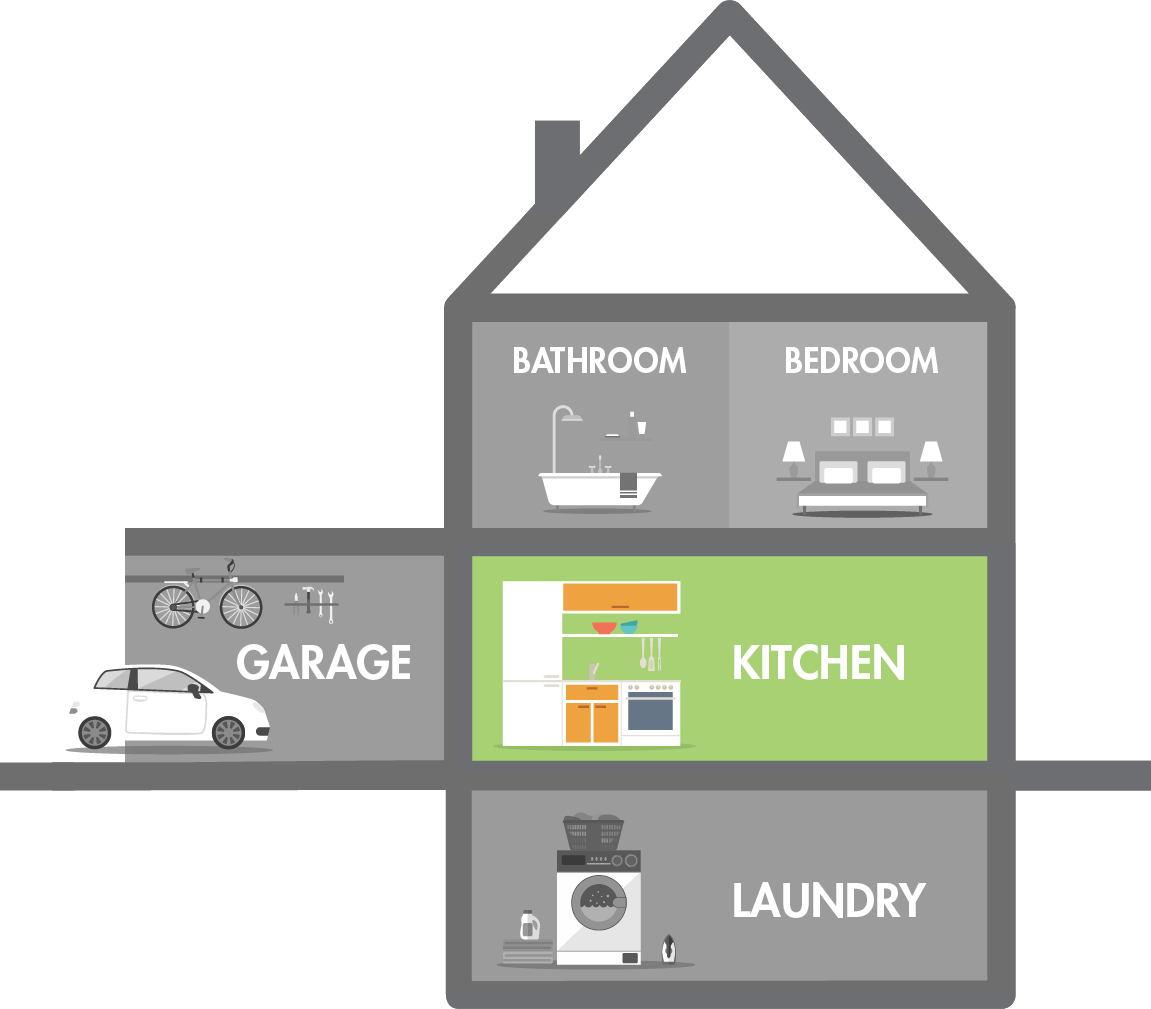 In the Kitchen
In the Kitchen
Pack an Eco-friendly Picnic!
Along with your gingham cloth, you’ll need your cutlery, plates, tupperware for your potato salad, and a picnic basket. Go old school for your picnic. Why? All the plastic cutlery, plates and cups, do no good to the environment. Opt for metal or glass dishware instead!
Recycle!
If you're not reusing the plastic in your kitchen, please make good use of your recycling bins. Just think of all the plastic we could save from landfills and our waterways simply by using our recycling bins.
Green Your Groceries.
Make a vow to nix the plastic bags from here on out. When plastic bags reach the ocean, some wildlife, like the leatherback sea turtle, may mistake them for jellyfish and consume them. Chowing down on too many plastic bags can even lead to their death. So choose cloth totes or other reusable bag when you hit the supermarket, and avoid products with excess non-recyclable packaging.
That’s a Wrap on Wrap.
Nix the wrap. Whether it’s for tenderloin or swordfish, ask your butcher to wrap it in paper instead of plastic. Plastic takes ages to degrade in water and breaks down into smaller and smaller bite sized pieces that are harmful to aquatic wildlife.
Stop Purchasing Bottled Water.
If you need to have water in tow for your daughter's soccer games, for instance, use refillable stainless steel bottles instead. At home, drink from the tap or enjoy filtered water instead.
Spend Some Time Cutting Open the Plastic Six-pack Rings from Beverages.
Whether it be pop bottle or beer can six-pack rings, they can do some serious damage if they enter our waterways. They can entangle birds and also sea turtles. So be sure to snip open the rings when you get home from the grocery store.
Swap Plastic for Metal or Wood Cooking Utensils.
Some people worry that using metal or wood cooking utensils for whipping up their favourite meals will ruin their Teflon-pans. Truthfully, they probably would. The solution? This would be a good time to make the transition entirely to stainless steel or cast iron pots and pans and use metal or wood cooking utensils on them instead. Non-stick ceramic pans are a great alternative to Teflon, and are not damaged by wooden cooking utensils.
Organize Your Kitchen with Glass Jars.
The next time you're organizing your pantry, choose glass jars over plastic bins.
Buy in Bulk.
There are so many items you can buy in bulk these days. Food like pasta, nuts, beans, cereal, flour, sugar and more can all be bought in bulk. You'll be cutting back on unnecessary packaging - which means saving our waterways from plastic.
Make a Pot of Coffee.
Permission to overindulge in caffeine! You're welcome. But in truth many of the individual coffee serving machines use a heck of a lot of plastic. And most of those just end up in landfills. We can do better by our planet!
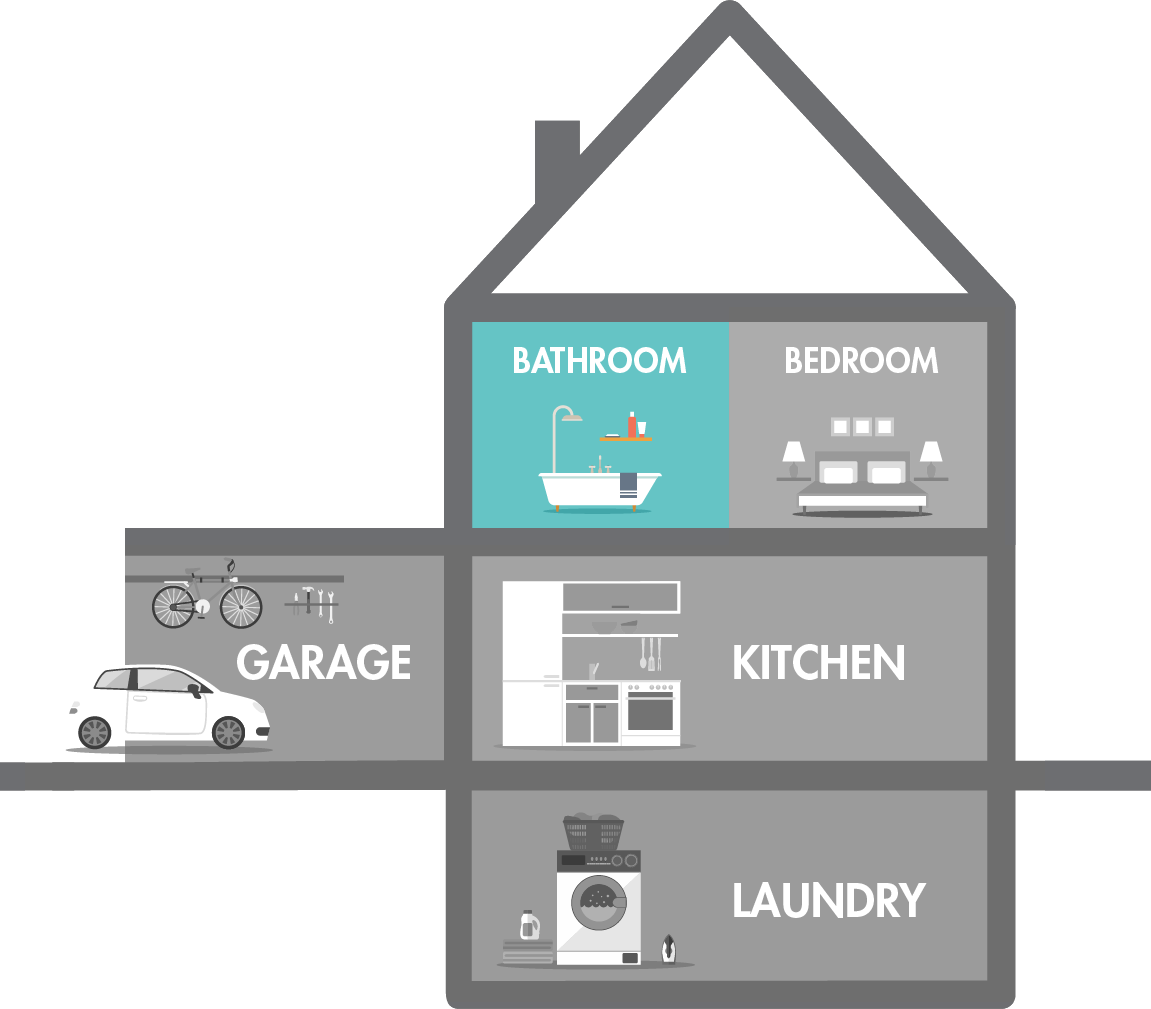 In the Bathroom
In the Bathroom
Simplify Your Pamper Routine.
Do you really need a serum, a night cream and a day moisturizer? Scale back on the sheer amount of items you use in your skincare routine and you'll be surprised at how many plastic bottles you can save from our waterways.
Keep On the Lookout for Microbeads in Your Products.
Do you have scrubs, micro polishing or exfoliating products cluttering up your vanity? They come in the forms of everything from toothpaste to face wash. Check their ingredients for polypropylene or polyethylene - they're both microbeads - as in plastic microbeads and they end up in our oceans and freshwater waterways too. Opt for natural ingredients as much as you can.
Buy in Bulk.
Your shampoos, conditioners, hand soaps, body lotions and body washes can all be purchased in bulk and transferred to reusable individual containers. The fewer plastic bottles we purchase, the better.
Swap Your Body Wash for a Good Ol' Bar of Soap.
When you switch to bars, you literally nix the need for plastic bottles entirely. Much better for the environment!
Toss Your Plastic Bottles in the Recycling Bin.
Do you have a recycling bin in your bathroom? If not, grab a bin and start placing all your plastic bottles in there. Then once it gets full, it's time to recycle!
Swap Your Body Scrub for a Body Brush.
Not only are body brushes wonderful for your circulation, they slough off dead skin cells just as well as body scrubs! Plus - they don't require any microbeads to do the hard work! Just be sure to purchase a body brush made of natural materials.
Just Say No to Disposable Razors.
Nowadays you can buy razors that allow you to simply swap out the blade itself every couple of weeks or so instead of replacing the whole razor. This also might be a good time to consider an electric razor!
Have a Plastic-free Period.
Pads and tampons both use a lot of plastic packaging. What a waste! Why not try a Diva Cup (it's reusable!) and reduce your plastic footprint?
Scale Back on Makeup.
You don't actually need three eyeshadow palettes and 20 lipsticks. Pick out your favourite beauty bits and stick to the essentials. Less makeup means less plastic packaging!
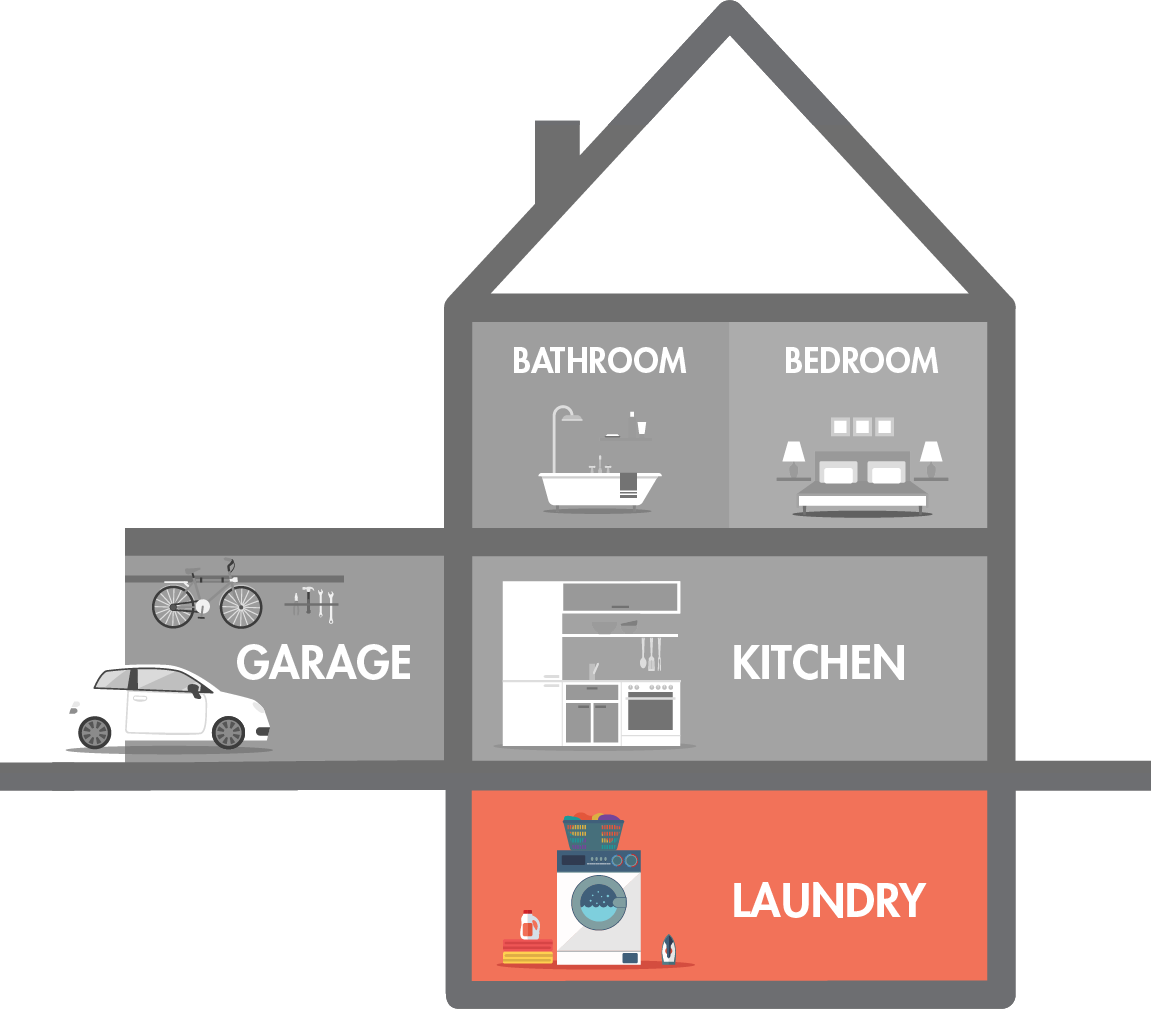 In the Laundry Room
In the Laundry Room
Buy Natural Materials.
Think silk, wool or cotton. Many of our synthetic materials like polyester, fleece, acrylic, lycra, nylon and spandex are made from fabrics that simply don't break down easily. When they go through the wash - their fibres can easily slip into our waterways.
Buy in Bulk.
Buy your laundry detergent in bulk so you can cut down on the amount of plastic used.
Take Stock of Your Closet.
Are you finding synthetic materials in your closet? Don't feel the need to replace your entire wardrobe right away. In the interim, wash your synthetic fabrics less frequently to reduce the impact they have on our rivers and oceans.
Rethink Your Washing Machine.
Have you thought about buying a filter for your washing machine? These can cut down on the amount of fibres that get released into our wastewater.
Choose Powdered Detergent.
Opt for powdered detergent in boxes over liquid soap in plastic bottles.
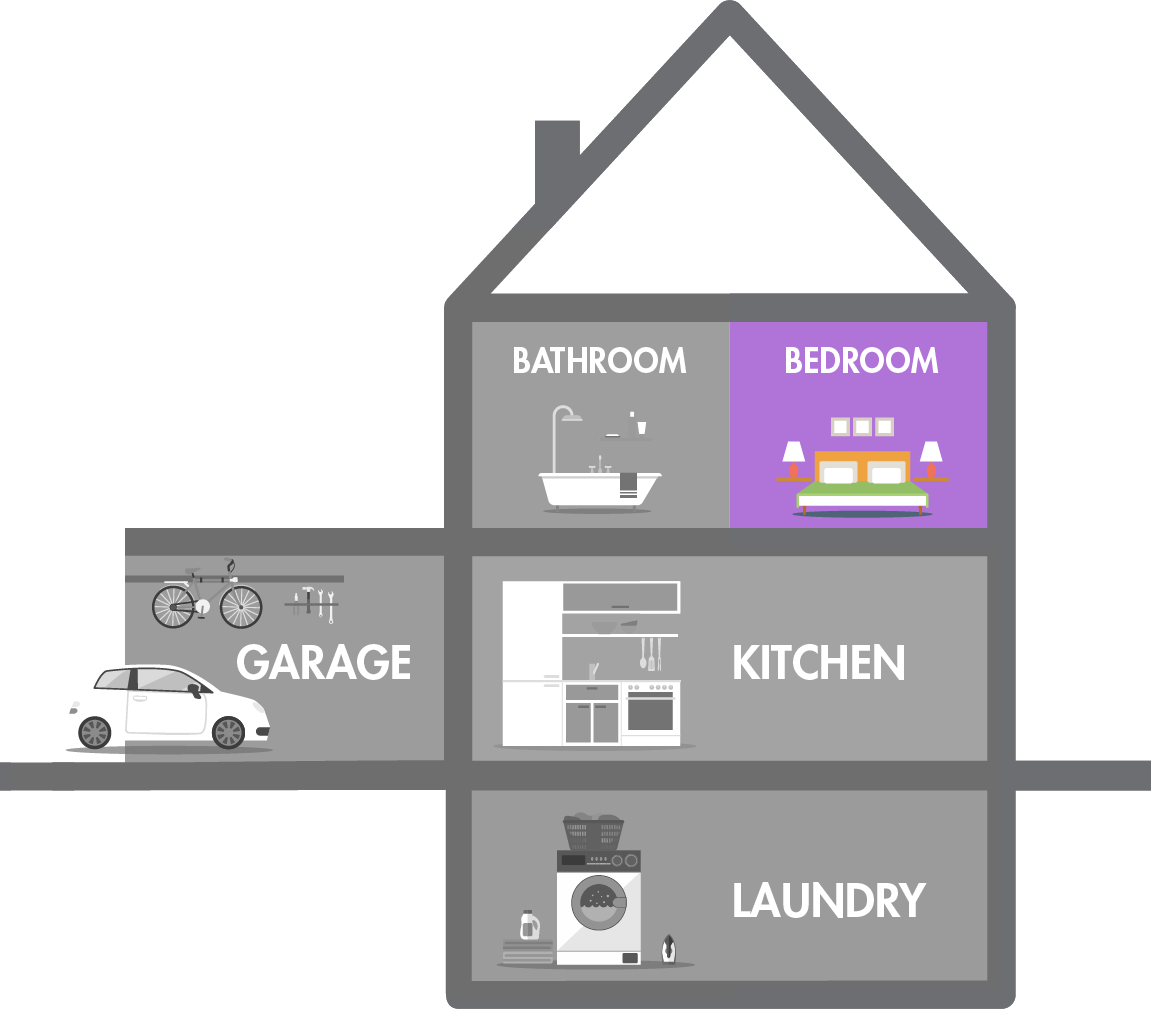 In the Bedroom
In the Bedroom
Buy Natural Bedlinen.
Think cotton, bamboo or silk. Many of our synthetic materials like polyester or flannel are made from fabrics that simply don't break down easily. When they go through the wash - their fibres can easily slip into our waterways.
Say No to Disposable Lighters.
Reach for a match instead of a disposable plastic lighter the next time you decide to light candles in your bedroom.
Go Au Naturel on Your Nightstand.
Stash coconut oil or jojoba oil in your nightstand to soothe your dry hands. Not only will these natural oils sink in quickly and moisturize your hands, they also do double duty as a lip balm too!
Slip Into Eco-friendly Pajamas.
There are plenty of natural materials that are cozy to lounge in. Cotton and silk are standard materials for pajamas, but hemp and bamboo are extremely soft also.
Scent Your Bedroom Naturally.
There’s no need to spray your bed linen with linen spray when you’ve got an essential oil diffuser. With a few drops of lavender and sandalwood essential oils, you’ll be sleeping soundly in no time.
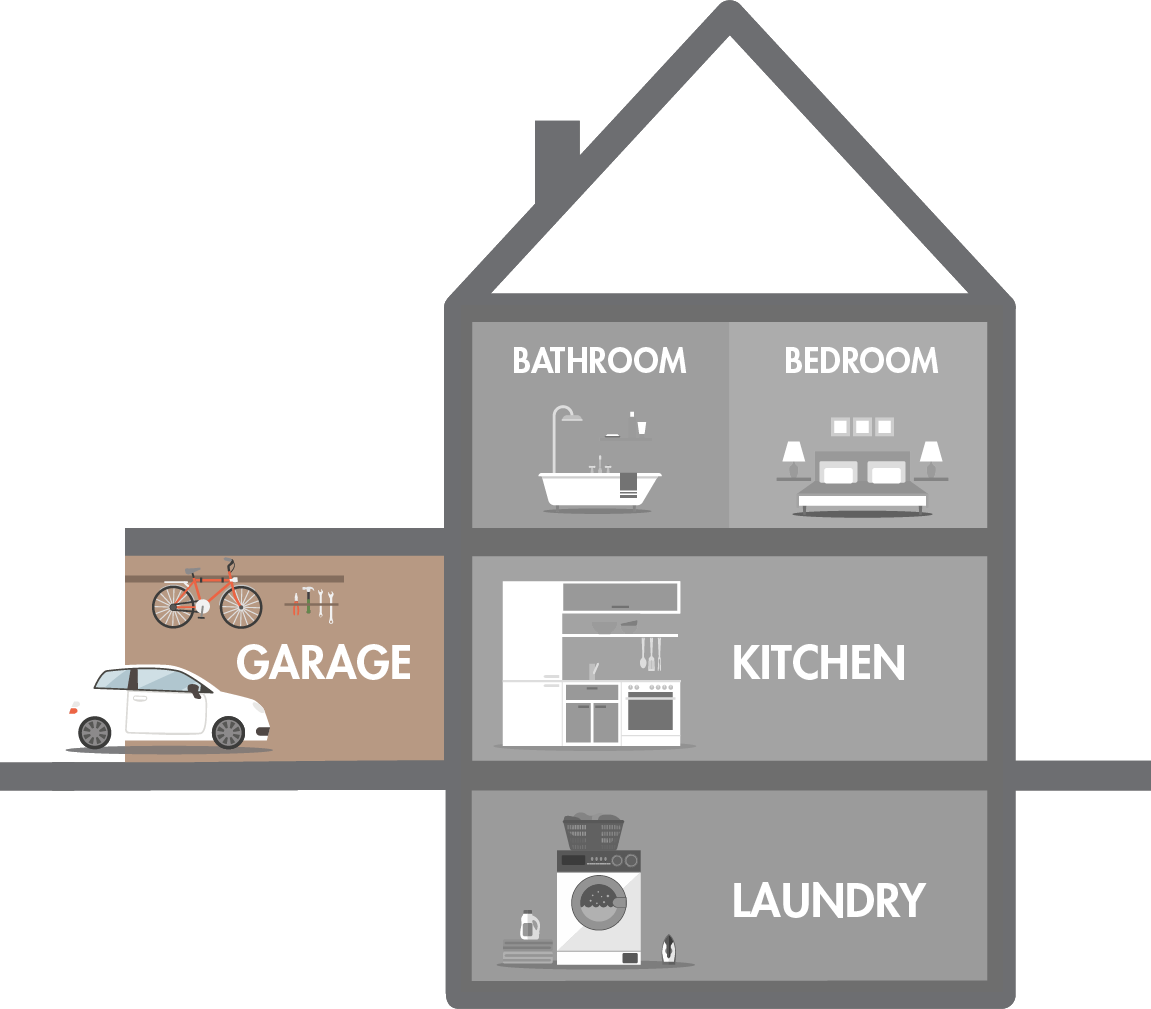 In the Garage
In the Garage
Nix the Pesticide Bottles.
Not only will that plastic bottle end up in a landfill, the contents will harm the critters in your backyard. Opt to put up a bat box instead. Did you know these small mammals can eat 50 to 100 per cent of their body weight in insects in a single night?
Retire Your Garden Hose.
When you grow native plants, you won’t need to spend hours watering your garden. Did you know that the average lawn requires 45,500 litres of water every summer? Grow native grasses and blooms and you won’t find much need for a garden hose!
Make Good Use of Your Compost Bin.
How many plastic trash bags would you say you set out to the road every year? Fifty-two or maybe even more? Why not ditch the plastic bags in favour of composting? You’ll be surprised how much that’ll reduce your trash output.
Choose a More Eco-friendly Patio Set.
Opt for bamboo or even wood when you’re scouting out your next patio furniture set. Plastic furniture is often made of vinyl or polyethylene which tends to break quickly. Choose a more sustainable material and you’ll be able to enjoy your set for years to come.
Green Your Next Camping Excursion.
Most of the tents on the market are made of unsustainable fabric like nylon. Why not camp old school and use canvas? There are plenty of products on the market these days that will help you to make it water repellent – some of them even use beeswax as their base!







